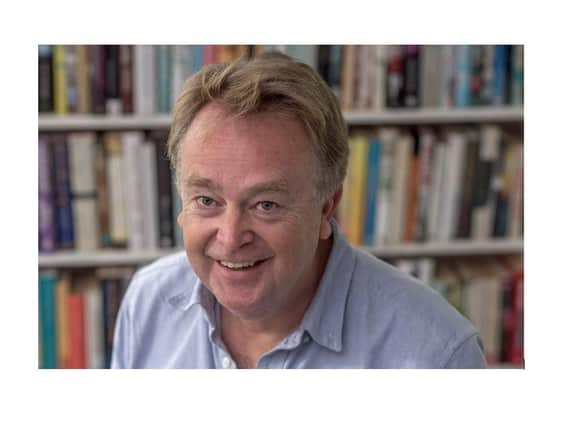Helping rural theatre get back on its feet


Composer John Gleadall and playwright Greg Mosse are behind The Unquiet Grave and 1920s Jazz Songbook which will both be performed by the same company, actor-singers Michaela Bennison and Jane Pegler, accompanied by Tony Pegler and John Gleadall.
The Unquiet Grave is a ghost story told with intriguing dialogue and half a dozen English folk songs, both haunting and hilarious.
Advertisement
Hide AdAdvertisement
Hide AdThe action takes place in deep woodland where Lydia Peck – a well-known folk singer – comes to remember. Unexpectedly, her daughter is also there …
Performances are on: Thursday August 12 at 7.30pm at Coronation Hall, Slindon, BN18 0QZ (tickets: 01243 814 207); Friday, August 13 and Saturday, August 14 at 7.30pm, The Spring, PO9 1BS (tickets: thespring.co.uk/023 9247 2700 – post-show discussion led by Kate Mosse); and Saturday, August 21 at 7.30pm at Sheet Village Hall, GU32 2AQ (tickets: One Tree Books 01730 261 199; www.ticketsource.co.uk).
1920s Jazz Songbook promises a concert of brilliant, uplifting story-telling jazz numbers – strong melodies, easy harmonies, great rhythms. You can enjoy it on Sunday, August 22 at 2.30pm in the Village Hall, West Ashling, PO18 8DR (www.ticketsource.co.uk/westashling).
Both shows will also be performed in Suffolk.
For Greg, it is about helping theatre return to our lives – but also helping it to return to places audiences can reach on foot.
Advertisement
Hide AdAdvertisement
Hide Ad“I am hoping it will make a contribution to the reopening of live theatre, but it is also about bringing smaller-scale professional shows to village halls where people can get to the venues on foot, sometimes professional venues like The Spring, but also the tiny places.
“I have always thought there is a really intelligent and informed audience in rural locations, and if you can make it work financially, you should be able to bring paid professionals to these venues.”
As for The Unquiet Grave: “The story is mine – but it only exists because of the power of the folk songs I’ve woven into it. I can’t tell you what happens because that will spoil the mystery, but – like folk music itself – the show veers between heartache and laughter, delicious harmonies and music-hall humour.
“The starting point is the need for reasonable grief and then move on. It is structured around seven old English folk songs. Some of them are comic folk songs, but others are deeply plangent melancholy. The music is modal. It is not just major or minor. It is a different kind of mood, and even when it is resolved, it still feels unfinished because these are not the harmonies we are used to.
Advertisement
Hide AdAdvertisement
Hide Ad“It is about a mother and a daughter that meet by chance on a certain day in a clearing in the woods that is very dear to them for different reasons. They reminisce about how they became a folk-singing duo together.”